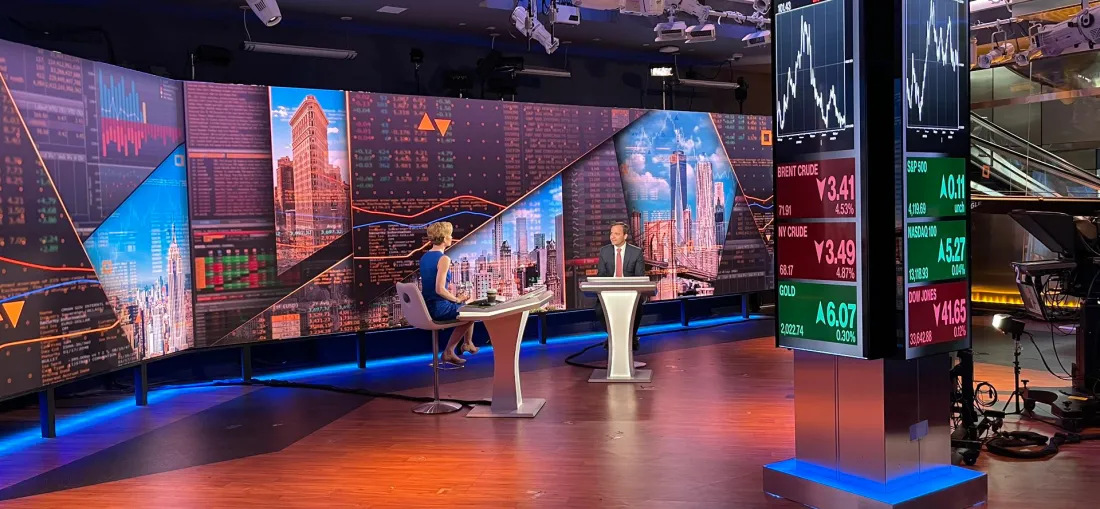Transcript of Bloomberg TV interview with Kalin Anev Janse

Transcript of interview with Kalin Anev Janse, ESM Chief Financial Officer
Bloomberg TV
3 May 2023
Interviewers: Alix Steel and Guy Johnson
Bloomberg TV: Are we going to be able to get a deal on fiscal rules? And I ask that because if we are confronted with a slowdown, how is there going to be some unity on how to address it from European governments?
Kalin Anev Janse: You might have seen that last weekend in Stockholm during the Eurogroup, the fiscal rules were one of the main themes because at the end of this year, the Stability and Growth Pact escape clause, which allows governments to spend more, is coming to an end. So as of next year, they will have to comply with the Stability and Growth Pact and the old rules, unless there are new rules put in place. At the ESM, we came up with a proposal to actually look differently at the fiscal rules, so we see some room for manoeuvre. The European Commission proposal for us goes in the right direction, but Europe is in a different situation than in 1990 when the Maastricht Treaty was signed and the fiscal rules were set up. So I think we will be moving towards some sort of an update and some sort of a reform. But as always in Europe, it takes time to bring all countries together.
If we don't get a deal, should we go back to the old rules?
Well, that's the default, right? If there's no deal, the default is to comply with the old rules. But I think this time we're in a different world. Debt levels in general are higher. We don't want countries to stop growth, so we think it makes sense to rethink the way they are set up. We came out ourselves last year with a working paper, where we gave some targets how the new rules could look like. But there are many ideas out there, so I think it's worthwhile to discuss this topic amongst governments.
At the same time, the whole world is dealing with the energy transition and Europe has to deal with the Inflation Reduction Act and how much money that the US is spending and how we're just shoving a lot of carrots out there. Europe is famously known for their sticks. If you can't figure out better fiscal rules, how do you compete with the US on providing carrots to the energy transition?
Very good question. And one of the reasons I'm here in New York is actually to tell the European story. And last year, when the Ukraine war hit, everyone looked at Europe and thought that Europe would go through a very difficult situation. But if you look back at the numbers, Europe was one of the fastest growing economies in the world.
Yes, but you guys got lucky. You got lucky because you were able to stockpile energy. It wasn't as cold as you thought.
Well, is it luck or is it just strength? And I would say it's really strength. I think Europe often is underestimated and overdelivers, but growth rates in Europe were 3.5%, almost twice as fast as the US. That's not what a lot of people have on their mind. Europe even grew faster than China. So I think that Europe actually has a lot of hidden potential and that's what we're here trying to tell to the investment community.
Is that potential also showing up in the banking sector? Europe relies on its banks and they are very important to its economy. We're not seeing the banking crisis that is emerging in the United States going into Europe in the same way, with such force. Is that luck or judgment? Again, do you think it's judgment? Do you think our regulation is better? Do you think the stress tests were better? How are you viewing what is happening in banking on both sides of the Atlantic?
Over the last ten years, Europe did a lot to strengthen our banking sector. We created the Single Resolution Mechanism, Single Supervisory Mechanism - we brought the supervision of 130 banks all to Frankfurt. We created the Single Resolution Fund if something goes wrong with the banks. And we also expect to have the ESM as a backstop in case something goes wrong. And in the European financial crisis and the euro crisis, the ESM was also of support to the banking sector. So the architecture of Europe is much stronger at the moment. Of course, financial stability risks are a key item. We saw that in the IMF spring meetings. So in Europe, we of course are watching what happens in the US. We watch what happens in Switzerland. But for now, we have proven to be resilient.
I understand that you're going to be bullish on Europe because you kind of have to be. What growth outlook do you foresee though for this year? The European Commission sees a 0.9% forecast for the full year. Realistic? Too low? Too high? What do you think?
Europe's forecast for this year is lower than last year. So last year we had a huge boom. The economies reopened, tourism came back, Europe was full of American tourists in the South of Europe, I was there myself. So this year we will probably have slower growth than last year. But still we seem to be out of the recession outlook and that for me is a positive sign. But I think the surprise could be on the upside towards most forecasts in the market.
Author

Contacts


